As the world continues to grapple with escalating stress levels, many are turning to an unexpected ally for solace – indoor plants. No longer just a decorative element, these green companions are steadily gaining recognition for their significant role in enhancing mental health and reducing stress.
With scientific backing that corroborates their calming influence, indoor plants have transitioned from being mere aesthetic additions to becoming vital components of a healthier living environment.
Dive into this fascinating exploration of the science-backed benefits of indoor plants, discover how they can improve your psychological well-being, and learn how these leafy friends can become your secret weapon against stress.
This article explores the psychological benefits of indoor plants, from reducing anxiety and improving concentration, to promoting better sleep quality.
We’ll also delve into the role of mindful plant care in mental health, discussing cautionary measures, and the importance of balancing indoor plants with other mental health strategies.
Welcome to a greener, healthier, and less stressful living space.
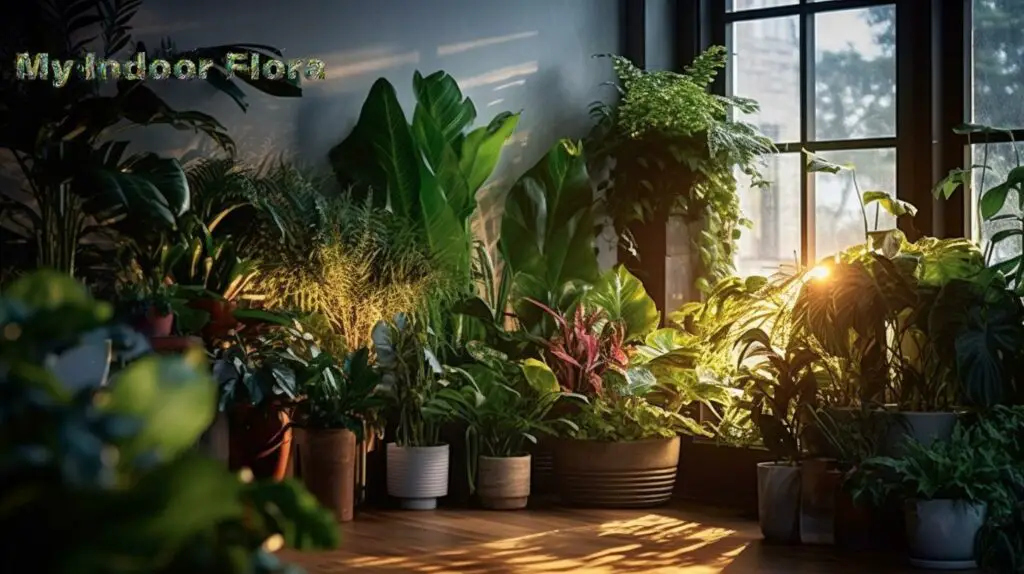
Why Are Indoor Plants Gaining Popularity for Mental Health and Stress Reduction?
If you’ve ever felt a sense of calm wash over you while sitting in a garden or walking through a forest, you’ve experienced the healing power of plants. This tranquility isn’t merely anecdotal; science backs it too. A study from the Journal of Physiological Anthropology found that interacting with indoor plants can reduce both physiological and psychological stress.
Furthermore, according to the American Psychological Association, about 75% of adults reported experiencing moderate to high levels of stress in the past month, and nearly half reported that their stress has increased in the past year. In such a stress-ridden world, it’s no wonder that people are turning to nature, even if it’s in the form of indoor plants, for solace.
What Specific Benefits Do Indoor Plants Provide for Mental Health?
From improving mood to enhancing productivity, indoor plants are nature’s little antidepressants that offer an array of mental health benefits. Let’s delve deeper into the details.
1. Improved Mood
Waking up to the sight of lush greenery or coming home to vibrant, blooming flowers can undoubtedly lift one’s spirits. A study conducted by Texas A&M University found that being around plants, even in an indoor environment, increases feelings of positivity and reduces feelings of anxiety, anger, or sadness.
2. Reducing Anxiety and Stress
The hustle and bustle of modern life often leave us feeling anxious and stressed. Enter indoor plants. In a study published in the Journal of Environmental Psychology, participants who spent time in a room with indoor plants reported feeling more relaxed and less stressed than those in a room without plants.
3. Concentration and Productivity
Ever found your mind wandering off during work? The solution could be as simple as placing a plant on your desk. According to a study published in the Journal of Environmental Horticulture, indoor plants can improve concentration and productivity by up to 15%.
4. Sleep Quality
Insomnia or poor sleep quality is a common complaint among adults, and it can have detrimental effects on mental health. Interestingly, certain indoor plants, like lavender and jasmine, have been found to promote better sleep quality through their calming aromas.
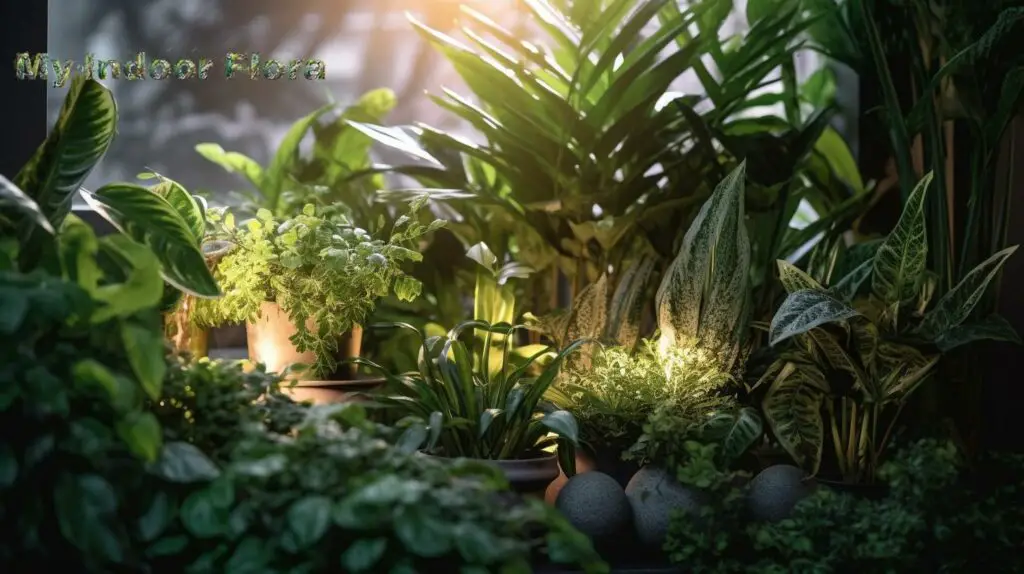
How Do Indoor Plants Reduce Stress?
On the surface, the connection between indoor plants and stress reduction may seem a bit nebulous, but when we delve into the psychological and physiological aspects, it becomes clear.
The Biophilia hypothesis proposed by Harvard biologist E.O. Wilson suggests that humans have an innate desire to connect with nature. When we fulfill this desire, even in small ways like having indoor plants, we experience a sense of calm and relaxation. This can help reduce mental fatigue and stress.
When we interact with plants, our bodies respond in ways that promote relaxation and stress relief. For example, a study conducted at Kansas State University found that viewing plants during recovery from surgery led to a significant improvement in physiologic responses as evidenced by lower systolic blood pressure, and lower ratings of pain, anxiety, and fatigue as compared to patients without plants in their rooms.
Taking care of indoor plants provides us with a sense of responsibility and purpose, which can be therapeutic in itself. It can also serve as a mindfulness exercise, helping us to stay present and focused, thus reducing feelings of stress or anxiety.
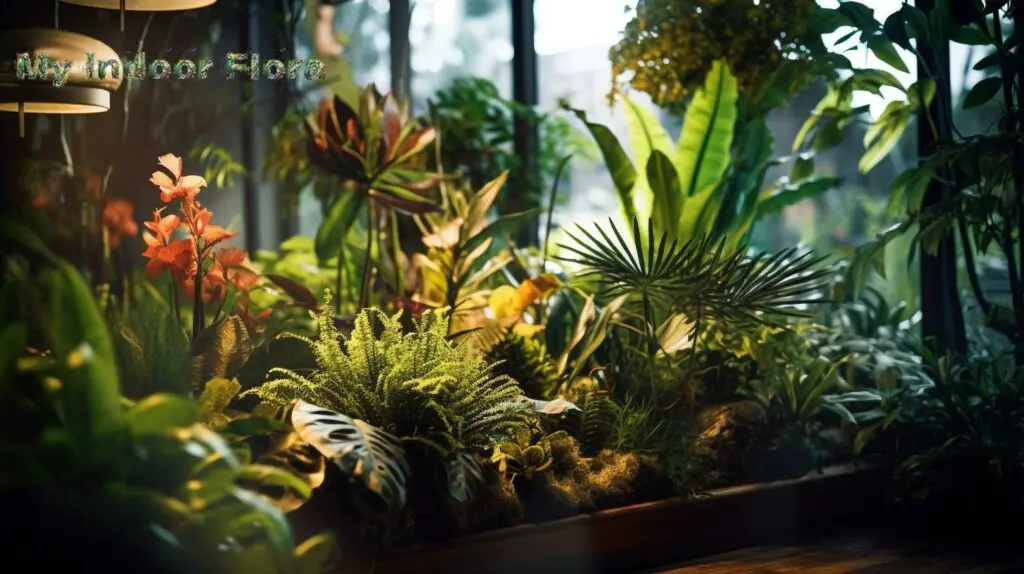
Which Indoor Plants Are Most Beneficial for Mental Health and Stress Reduction?
The world of indoor plants is vast, with each species offering unique benefits. Certain plants, however, stand out for their specific benefits to mental health and stress reduction. Let’s take a closer look at these plant superheroes.
Spider Plant (Chlorophytum comosum)
Spider Plants are an excellent addition to your indoor garden, renowned for their air-purifying capabilities. A study by NASA found that Spider Plants are particularly adept at filtering formaldehyde, xylene, and toluene from the air. Cleaner air can lead to improved mood, decreased anxiety, and better sleep, all beneficial for mental health.
Snake Plant (Sansevieria trifasciata)
Also known as Mother-In-Law’s Tongue, Snake Plants have a reputation for being nearly indestructible, making them an excellent choice for beginners. But they’re more than just hardy. Snake Plants are one of the few plants that convert carbon dioxide into oxygen at night, potentially improving your sleep environment. Moreover, their resilience can provide a sense of accomplishment, which can be therapeutic for those dealing with stress or mental health issues.
Peace Lily (Spathiphyllum)
Peace Lilies are more than just a pretty face. These plants are known for their ability to improve indoor air quality significantly. They can filter out harmful toxins like benzene, ammonia, and formaldehyde. Being around a cleaner environment can help reduce stress levels and improve mood. Additionally, the bright white blooms of the Peace Lily can add a soothing aesthetic to your space, promoting tranquility.
Aloe Vera (Aloe barbadensis miller)
Aloe Vera is a well-known plant with myriad health benefits, from soothing skin burns to promoting oral health. Caring for an Aloe Vera plant can offer a sense of accomplishment and purpose, reducing feelings of stress or anxiety. Plus, it’s another excellent plant for improving indoor air quality.
English Ivy (Hedera helix)
English Ivy, a robust climbing plant, is another superstar on NASA’s list of air-purifying plants. It’s particularly effective at absorbing formaldehyde, a common volatile organic compound (VOC) that can affect mental health. Its lush greenery can also add a touch of nature to your indoor space, promoting feelings of calm and relaxation.
Jasmine (Jasminum)
Jasmine plants are often praised for their sweet, calming aroma. A study published in the Journal of Biological Chemistry found that the scent of Jasmine can have a calming effect, similar to that of certain sedatives. Keeping a Jasmine plant in your bedroom may improve sleep quality, which in turn can benefit mental health.
Lavender (Lavandula)
Lavender has long been used in aromatherapy for its soothing scent. Research published in the Journal of the Medical Association of Thailand found that inhaling lavender oil can decrease blood pressure, heart rate, and skin temperature, all signs of relaxation. Having a Lavender plant at home can provide similar benefits, helping to reduce stress and promote good sleep.
Each of these indoor plants offers unique benefits for mental health and stress reduction. While choosing a plant, consider your living conditions, plant care abilities, and specific mental health needs to make the best choice. Lets take a look at the summary table for your convenience.
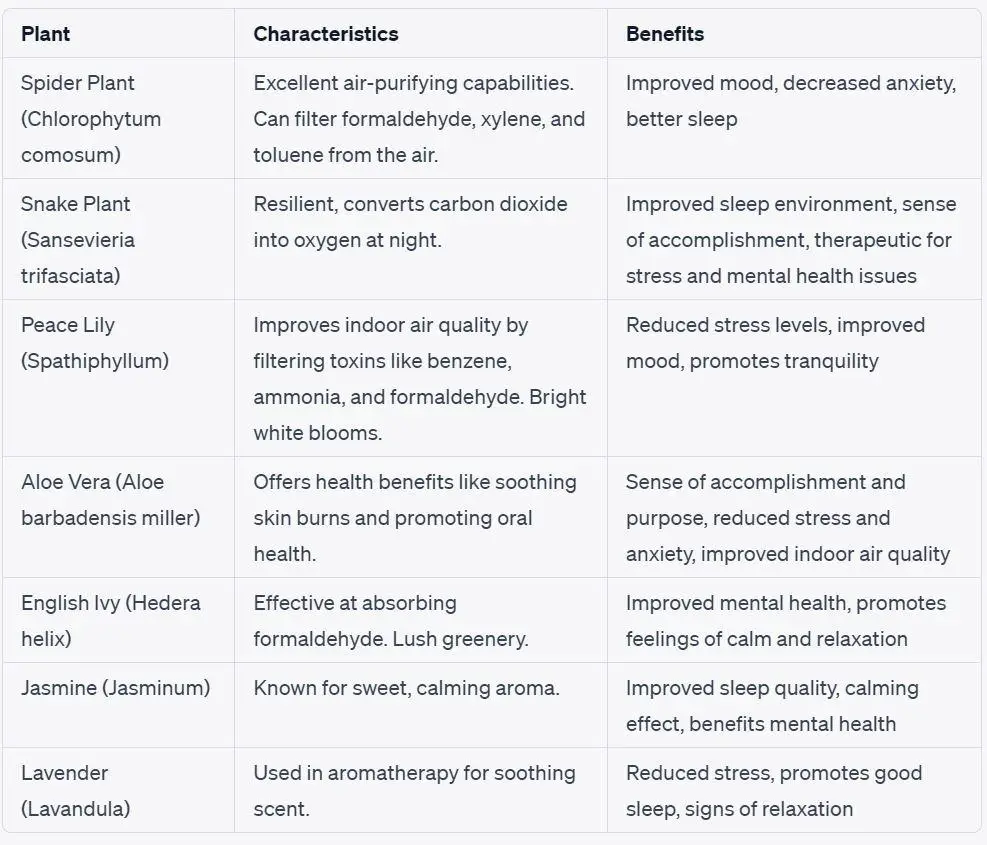
How Can Indoor Plants Be Used Effectively for Mental Health and Stress Reduction?
Simply having indoor plants isn’t enough. You also need to know how to use them effectively for mental health and stress reduction.
Optimal Placement
For starters, place your indoor plants where you spend most of your time. Having plants in your line of sight can offer a sense of calm and relief. A study from the University of Technology, Sydney suggests that just one plant can provide significant psychological benefits, so imagine what a room full could do!
Plant Care Routines in Promoting Mental Health
Caring for plants can establish a routine, providing a sense of control and purpose, which are known to promote mental health. Watering your plants, checking for new growth, or even talking to them can serve as mindful activities to reduce stress.
Incorporating Indoor Plants into Mindfulness Practices
When you water your plants or prune their leaves, take the opportunity to practice mindfulness. Pay attention to the feel of the soil, the texture of the leaves, the color of the flowers. This practice can ground you in the present moment, reducing worry and stress.
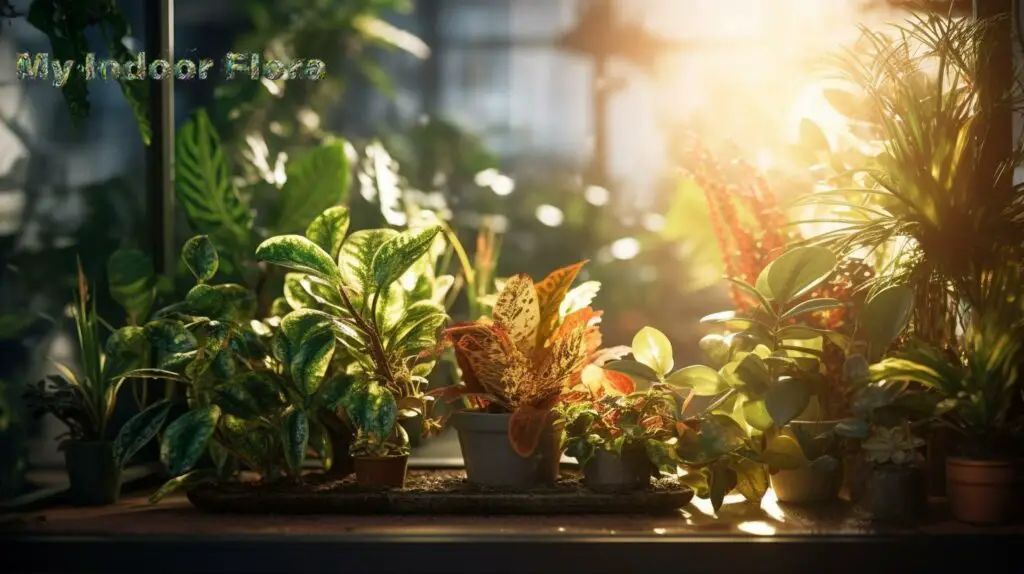
What Does the Scientific Research Say About Indoor Plants and Mental Health?
Over the years, scientific research has supported the beneficial role of indoor plants in mental health and stress reduction. A study published in the Journal of Physiological Anthropology found that interacting with indoor plants can reduce physiological and psychological stress.
However, while the current body of research is promising, it’s also important to acknowledge its limitations. Many studies have small sample sizes or short durations, which can affect their generalizability. Future research may uncover even more about the complex relationship between indoor plants and mental health.
Are There Any Potential Risks or Downsides to Using Indoor Plants for Mental Health?
While indoor plants offer numerous benefits, it’s also essential to consider potential risks or downsides.
Potential Allergies or Sensitivities
Some people may experience allergies or sensitivities to certain plants. Before bringing a new plant into your home, it’s a good idea to check if it’s known to cause allergic reactions.
The Risks of Overdependence on Indoor Plants for Stress Reduction
While plants can help manage stress, they shouldn’t replace professional mental health support. If you’re dealing with a serious mental health condition, it’s crucial to seek professional help.
Balancing the Use of Indoor Plants with Other Mental Health Strategies
Indoor plants are just one tool in the toolbox for managing mental health. It’s important to balance their use with other strategies, such as therapy, medication, exercise, and maintaining a balanced diet. They should complement, not substitute, comprehensive mental health care.
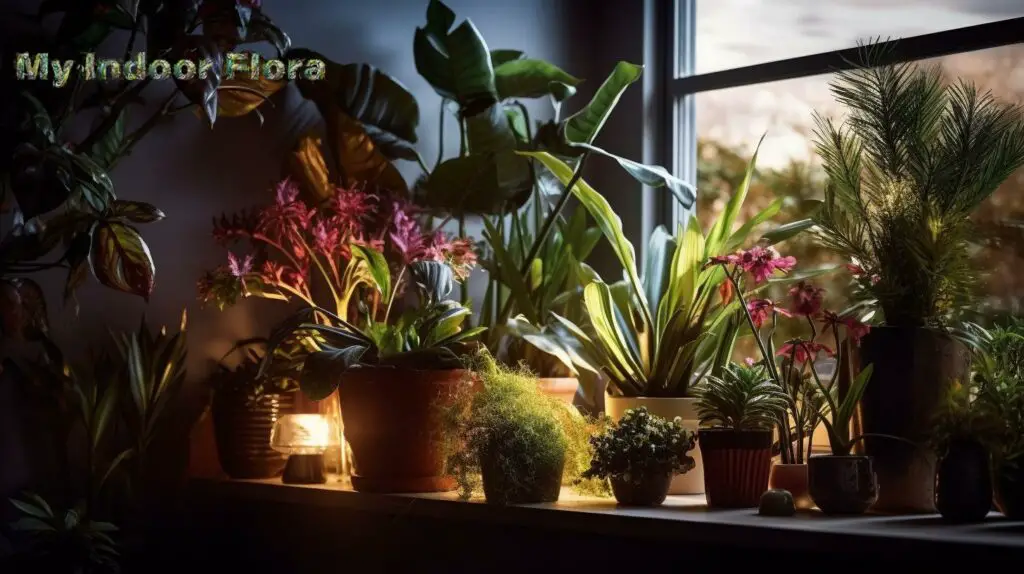
What Do Mental Health Professionals Say About the Use of Indoor Plants?
The recognition of indoor plants’ benefits has transcended the boundaries of anecdotal evidence and personal experiences. Mental health professionals, the individuals who encounter and manage mental health issues daily, are acknowledging and promoting the use of indoor plants in therapy and mental health management.
Dr. Oliver Robinson, a psychologist and senior lecturer of psychology at the University of Greenwich, has recognized the benefits of plants in an individual’s surroundings. He notes, “Being around plants, even indoor plants, can induce a sense of well-being. Taking care of plants can provide a sense of responsibility and connectedness with other living things, which contributes to overall mental health and a feeling of positivity.”
Similarly, Dr. Jo Barton, a specialist in Green Exercise research at the University of Essex, emphasizes the importance of connecting with nature for mental health. She suggests, “Connecting with nature, which includes interaction with plants, can have significant mental health benefits, including improved mood, increased concentration, and reduced stress levels.”
Dr. Chris Skelton, a clinical psychologist and director of the Psychology Clinic at Massey University, New Zealand, even incorporates indoor plants into his therapeutic practice. He says, “Having indoor plants in a therapy room can provide a calming environment and can also be used as a focus for mindfulness exercises. They also act as a symbol of growth and change, which can be beneficial in the therapeutic process.”
In addition to individual professionals, organizations like the American Horticultural Therapy Association (AHTA) are advocates for the therapeutic use of plants. The AHTA emphasizes that the engagement with plants and plant-related activities can be used to assist in achieving specific therapeutic goals. They believe it’s a beneficial and effective therapeutic tool for people grappling with mental health issues.
Overall, the incorporation of indoor plants in mental health discourse among professionals and organizations underlines their potential. This continued recognition and study into the benefits of indoor plants can pave the way for more integrative therapeutic approaches in the future.
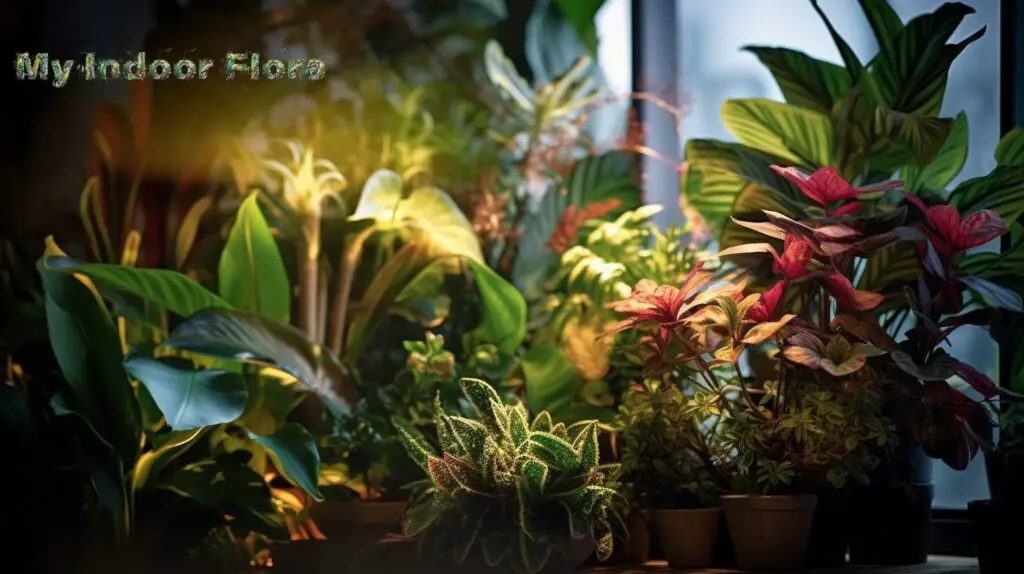
Conclusion: The Future of Indoor Plants in Mental Health and Stress Reduction
The benefits of indoor plants for mental health and stress reduction are undeniable. From lifting our mood to improving our focus, these green companions offer a simple yet effective way to enhance our mental well-being.
While more research is needed to fully understand the nuances of this relationship, the existing studies provide a strong foundation for integrating indoor plants into our mental health routines. As we continue to explore and understand the role of indoor plants in mental health, we open the door to a greener, healthier future.
So, the next time you find yourself feeling stressed or down, perhaps a trip to the local nursery could be just what the doctor ordered. After all, it’s not just about adding a touch of green to your home – it’s about reaping the mental health benefits that these plants generously offer. And in a world that’s increasingly turning to nature for solace, indoor plants might just be our new best friends.
